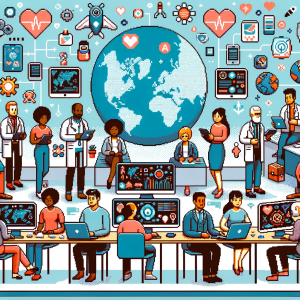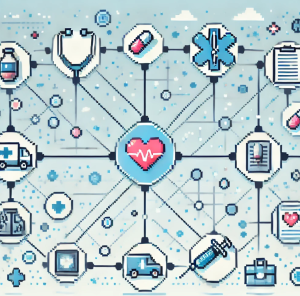![A [short] conversation with Per Nilsen](https://thisweekinpublichealth.com/wp-content/uploads/2024/07/image-11.png)
A [short] conversation with Per Nilsen
Dr. Per Nilsen is a distinguished professor specializing in implementation science, a rapidly growing interdisciplinary field focused on bridging the gap between research and practice. As a member of the Department of Health, Medicine and Caring Sciences at Linköping University, he leads the Division of Society and Health. Dr. Nilsen has been instrumental in developing an ambitious implementation research program that has garnered both national and international acclaim.
He recently published a fascinating piece, Towards evidence-based practice 2.0: leveraging artificial intelligence in healthcare that explores the promise and perils of AI and health care (we blogged about it here)

What are the biggest problems with the current EBP model, and how can AI fix them?
I think the EBP model in itself represents a vast simplification, but models ARE simplifications of reality, so that is to be expected. I guess a key issue with the EBP model is how you actually integrate knowledge and information from different sources. How do you “weigh” your own experience vs. research evidence based on averages? I think AI can improve some aspects, e.g., make our experience more reliable (although AI can also be biased, etc.), and it can support the generation of evidence for use in practice. However, I’m not sure AI will “fix” things; I’d rather talk in terms of improvement 🙂 I think we need to do more research on the implementation and use of AI in healthcare, and I guess we’re at an early stage of a long development process.
How can AI tools help patients become more involved in their own healthcare?
[This idea] is very much based on speculation until we have empirical research to demonstrate how AI tools can contribute to patient involvement. I think some of the descriptions of AI’s positive influence on patient involvement are somewhat over-optimistic 😉
What do you think healthcare will look like with AI fully integrated? What steps do we need to take to reach that point?
I think healthcare is lagging behind other sectors, but partially for good reasons as healthcare can be about life or death so we shouldn’t hurry too fast. It’s important to do research on various AI uses in healthcare. I don’t know how healthcare will look with AI fully integrated. I’m not comfortable speculating on that, I’m afraid 🙂
Empower Your Network – Subscribe and Share!
Unlock key insights with ‘This Week in Public Health.’ Subscribe for free and share to drive change as part of a dedicated community.



